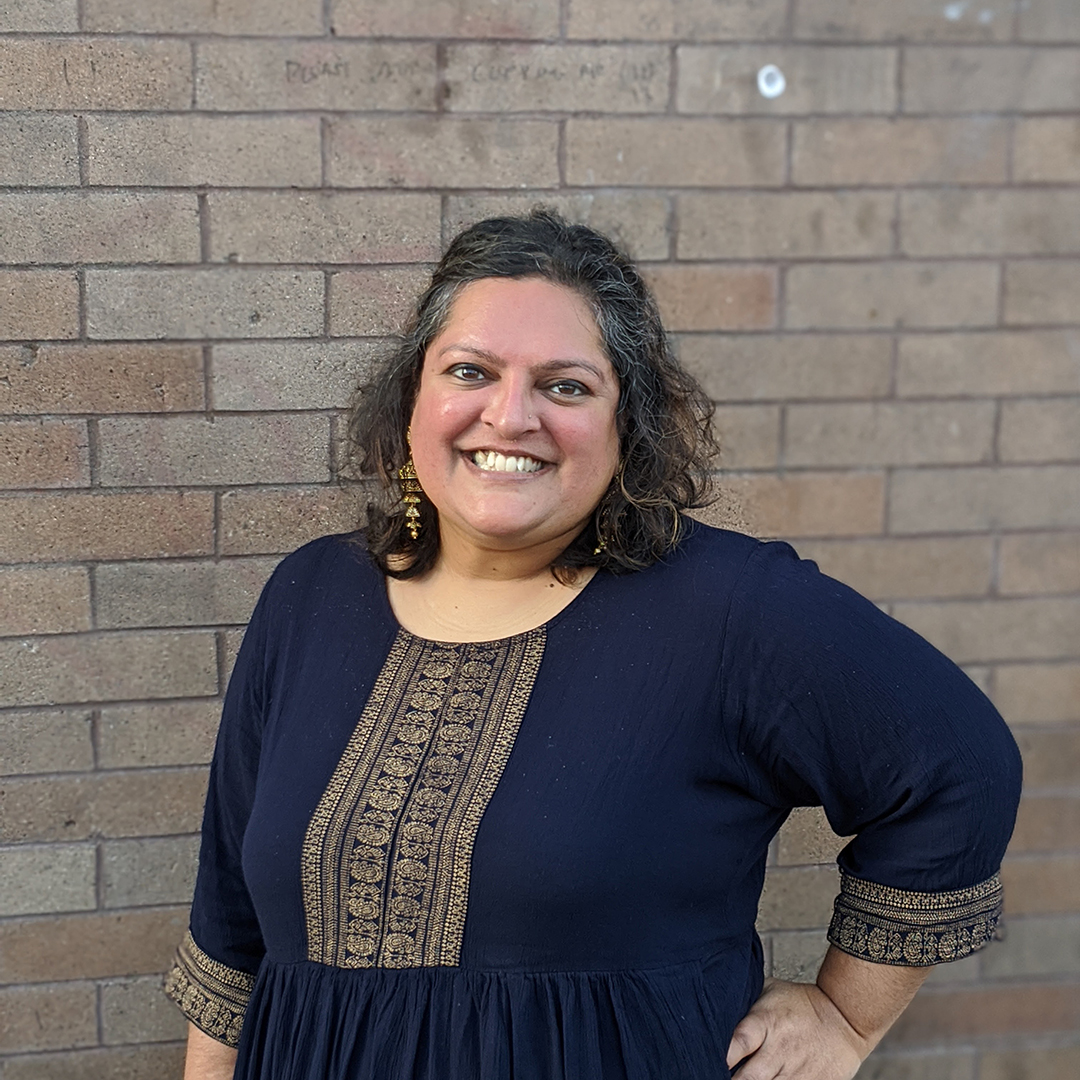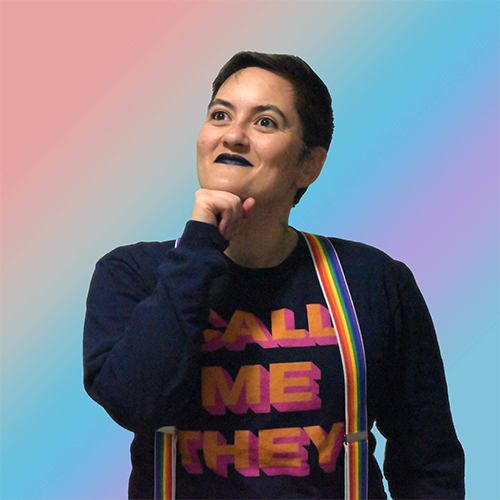 “Fundraisers have so much power to push forward equitable practices at the organizations we represent. You can commit to using that influence to encourage your nonprofit and partners to push for systemic change.”
“Fundraisers have so much power to push forward equitable practices at the organizations we represent. You can commit to using that influence to encourage your nonprofit and partners to push for systemic change.”
The Hub
How I learned to say, “Not today, imposter syndrome!”
 I want to talk about impostor syndrome, that little hater we all know who has grown too comfortable living in our bodies. It’s the voice that tells the story of our failure, over and over again. Really, it’s a wound we have to heal.
I want to talk about impostor syndrome, that little hater we all know who has grown too comfortable living in our bodies. It’s the voice that tells the story of our failure, over and over again. Really, it’s a wound we have to heal.
Bringing donors into the movement
 Community-Centric Fundraising (CCF) is a movement founded by fundraising professionals — but its success will not be realized if we do not cast a wider net to others impacted by the ineffective and inequitable realities of the nonprofit sector.
Community-Centric Fundraising (CCF) is a movement founded by fundraising professionals — but its success will not be realized if we do not cast a wider net to others impacted by the ineffective and inequitable realities of the nonprofit sector.
In a season of rampant anti-Indigeneity, here are some things you should and shouldn’t do to be pro-Indigenous
 On days including and between Indigenous People’s Day and Native American Heritage Day, I feel like I run a gauntlet of aggressions, micro and macro, from white-led environmental nonprofits, white people in environmental nonprofits, and sometimes even from my kinfolk who aren’t transparent when trying to get white peoples’ money to continue their good works in their nonprofits.
On days including and between Indigenous People’s Day and Native American Heritage Day, I feel like I run a gauntlet of aggressions, micro and macro, from white-led environmental nonprofits, white people in environmental nonprofits, and sometimes even from my kinfolk who aren’t transparent when trying to get white peoples’ money to continue their good works in their nonprofits.
From status quo to radical quo: personal lessons from electoral fundraising
By Allison Celosia and Priscilla Hsu
 “Why are fundraisers in electoral and advocacy spaces doing the same old nonprofit-y donor-centric scarcity mindset sense of urgency nonsense? Aren’t politicians and community organizers supposed to challenge and transform the status quo?”
“Why are fundraisers in electoral and advocacy spaces doing the same old nonprofit-y donor-centric scarcity mindset sense of urgency nonsense? Aren’t politicians and community organizers supposed to challenge and transform the status quo?”
The Ethical Rainmaker: Is ‘Impact Investing’ Just About Stroking Egos? w/ Bob Osborne
![]() Michelle and The Osborne Group’s Bob Osborne discuss their experiences and analysis of ‘incubators for social impact projects’!
Michelle and The Osborne Group’s Bob Osborne discuss their experiences and analysis of ‘incubators for social impact projects’!
3 ways I am helping expand access and foster diversity, equity, inclusion, and belonging in an Ivy league school
 Inspired by CCF’s 10 Principles of Community-Centric Fundraising, I have reflected on how I champion DEIB in my role, and wanted to share my strategies with other higher education Corporate and Foundation Relations (CFR) professionals.
Inspired by CCF’s 10 Principles of Community-Centric Fundraising, I have reflected on how I champion DEIB in my role, and wanted to share my strategies with other higher education Corporate and Foundation Relations (CFR) professionals.
What “How to Build a Sex Room” can teach us about relationship-building
 Since fundraising is almost entirely built on relationships, what can we learn about relationship building from “How to Build a Sex Room”? And what would it look like to apply these lessons to fundraising?
Since fundraising is almost entirely built on relationships, what can we learn about relationship building from “How to Build a Sex Room”? And what would it look like to apply these lessons to fundraising?
The Ethical Rainmaker: How do you keep everyone happy? Creating culture change ft Rickesh Lakhani
![]() Michelle sits with Rickesh Lakhani and discusses what it takes to build a beautiful workplace culture.
Michelle sits with Rickesh Lakhani and discusses what it takes to build a beautiful workplace culture.
5 Things I Learned from Facilitating My Data Equity Workshops
 My workshops to advance equity in data are built with this intention — to build collective knowledge around data collection and visualization in a way that allows us to appropriately challenge those places where data can lead to exclusion and alienation. I learned five lessons by offering these workshops to individuals from different roles, sectors, and data comfort that I want to share with you.
My workshops to advance equity in data are built with this intention — to build collective knowledge around data collection and visualization in a way that allows us to appropriately challenge those places where data can lead to exclusion and alienation. I learned five lessons by offering these workshops to individuals from different roles, sectors, and data comfort that I want to share with you.
For professionals of color, bringing our whole selves to work shouldn’t mean reliving trauma for the benefit of white colleagues
 “I’ve navigated a lot of spaces that have implicitly or explicitly not been for me. Over time, you learn what parts of yourself to bring forward and what parts to protect.”
“I’ve navigated a lot of spaces that have implicitly or explicitly not been for me. Over time, you learn what parts of yourself to bring forward and what parts to protect.”
The Ethical Rainmaker: Is Community-Centric Fundraising Still Working Two Years Later? ft Rachel D’Souza Siebert and Henry Ramos
![]() Michelle sits with Rachel D’Souza Siebert and Henry Ramos to discuss where CCF is at today… and why it’s making itself at home because it’s here to stay.
Michelle sits with Rachel D’Souza Siebert and Henry Ramos to discuss where CCF is at today… and why it’s making itself at home because it’s here to stay.
